| RICARDO GARCIA MIRA |
SILVIA DONATO |
|
|
| MARINO BONAIUTO |
CORINA LLIN |
|
|
| ADINA DUMITRU |
LINDA STEG |
|
|
| DAVID UZZELL |
NORA RÄTHZEL |
|
|
| JOSE Mª PEIRÓ |
GARY POLHILL |
|
|
| AMPARO ALONSO |
TONY CRAIG |
|
|
Download Schedule pdf
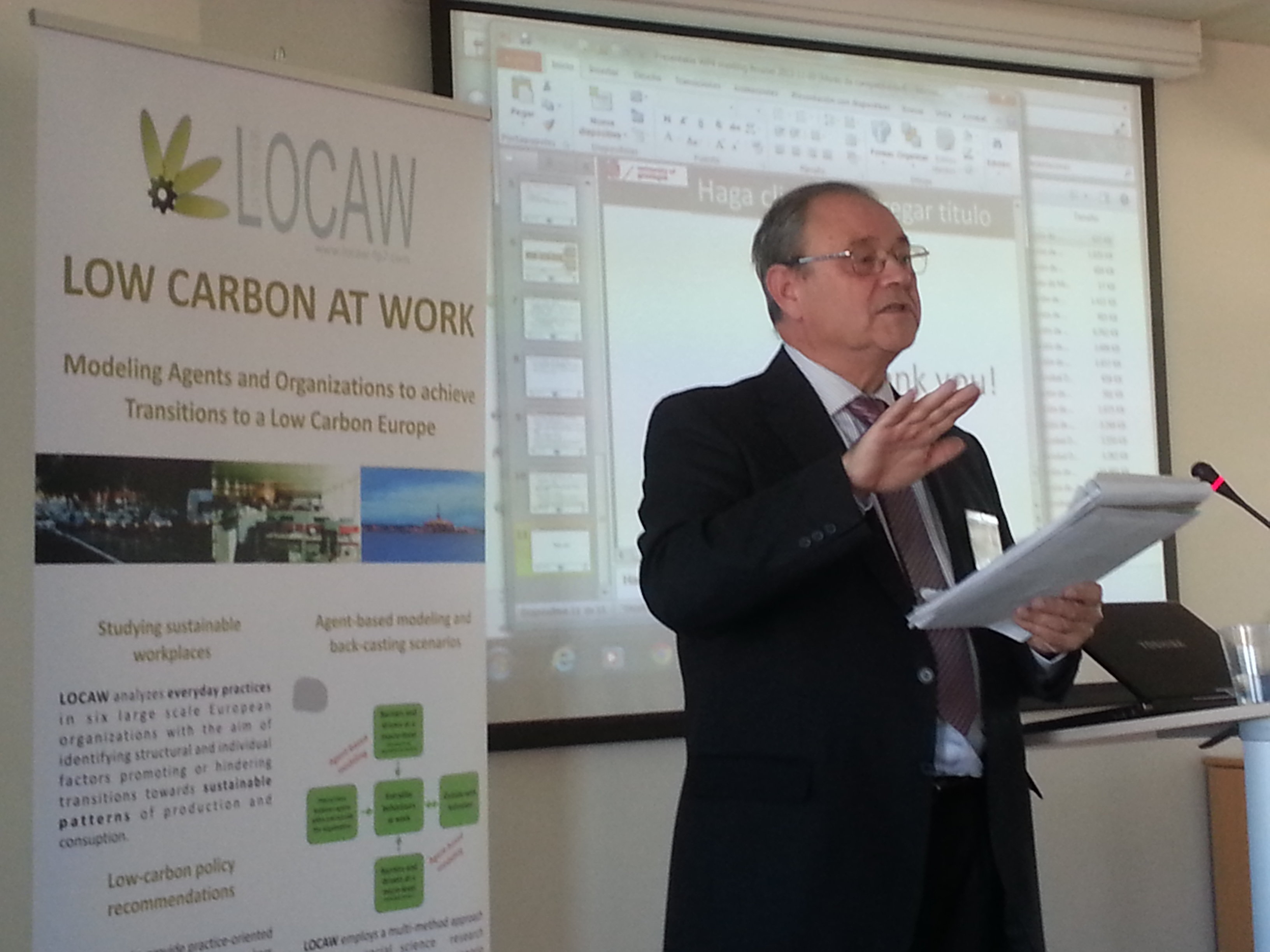 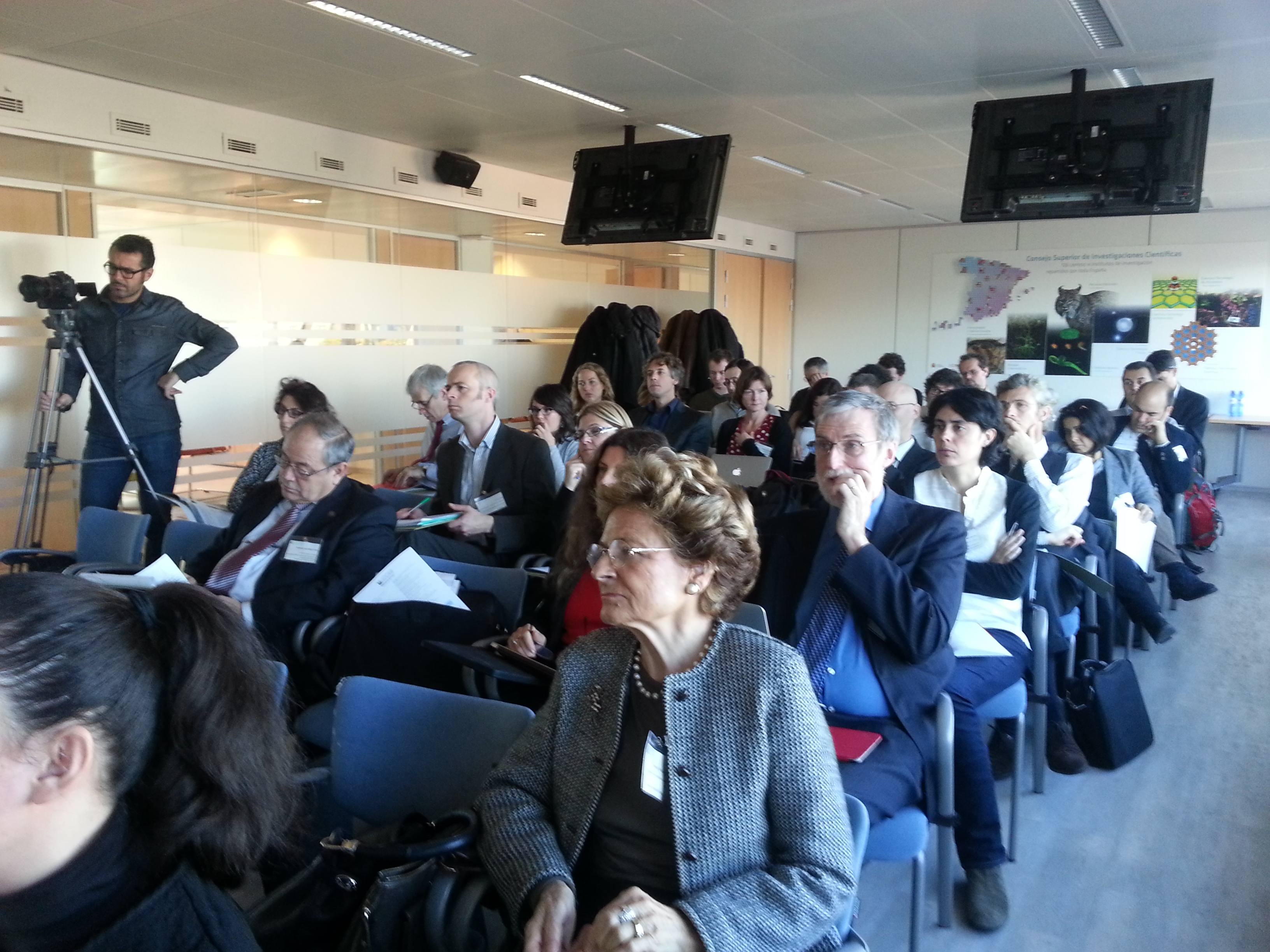
BRUSSELS LOCAW FINAL SEMINAR. DECEMBER10th. Spanish National Research Council (CSIC).
Large organizations are responsible for a significant amount of greenhouse gas (GHG) emissions. The emissions generated by large organizations result both from of their production processes andfrom the pressures under which they function within our economic system. As a result of new EU and national regulations, organizations have started to implement mechanisms to reduce their GHG emissions. However, as stated in the EU Sustainable Development Strategy Review 2009, these strategies have not been sufficient to ensure significant reductionsin emission rates. If we are to make a significant impact in reducing emissions, we need to identify the barriers to and drivers of sustainable changes in everyday workplace practices across different types of organizations.
LOCAW is a theoretically and empirically-grounded analysis of everyday practices in the workplace, and of the factors promoting or hindering the transition to more sustainable working practices and production processes. The research undertaken has examined large private and publicemployer-organizations in six different countries in order toilluminate the interactions among relevant actors at all levels (managers, workers as well as trade unions) both within and outside the organization and thus providing a detailed account of barriers to and drivers for cooperation in transitioning to a low-carbon Europe. These results are being translated into detailed policy and practice-oriented descriptions of how to encourage sustainable practices in the workplace. Moreover, opportunities are being explored for understanding how sustainable practices in the home and the workplace can be transferred from one life domain to another. This understanding will contribute to the design of cost-effective policy and the creation of conditions that would enhance and speed up societal-wide transitions to sustainability.
Research has been developed in the following organizations:
Ø Volvo AB, Sweden
Ø Shell UK, Ltd, United Kingdom
Ø Enel Green Power, Italy
Ø Aquatim, Romania
Ø Municipality of Groningen, The Netherlands
Ø University of A Coruña, Spain
The project has used a multi-method approach which included both quantitative and qualitative techniques to identify the level of sustainable practices at work and to understand the factors promoting or inhibiting them. Participatory scenario development workshops were then conducted to identify necessary changes if the organizations are to become sustainable, and the pathways to bringing about such change. They were also used to ensure that our models are sufficiently grounded in reality and will constitute useful tools to help organizations understand how to promote sustainability at work. Finally, agent-based modelling is being used as a key component of the results synthesis and in order to explore the effects of adaptive policies at regional, national and EU levels. Models are formalized based on the outputs of previous stages.
Click on the images to download the presentations
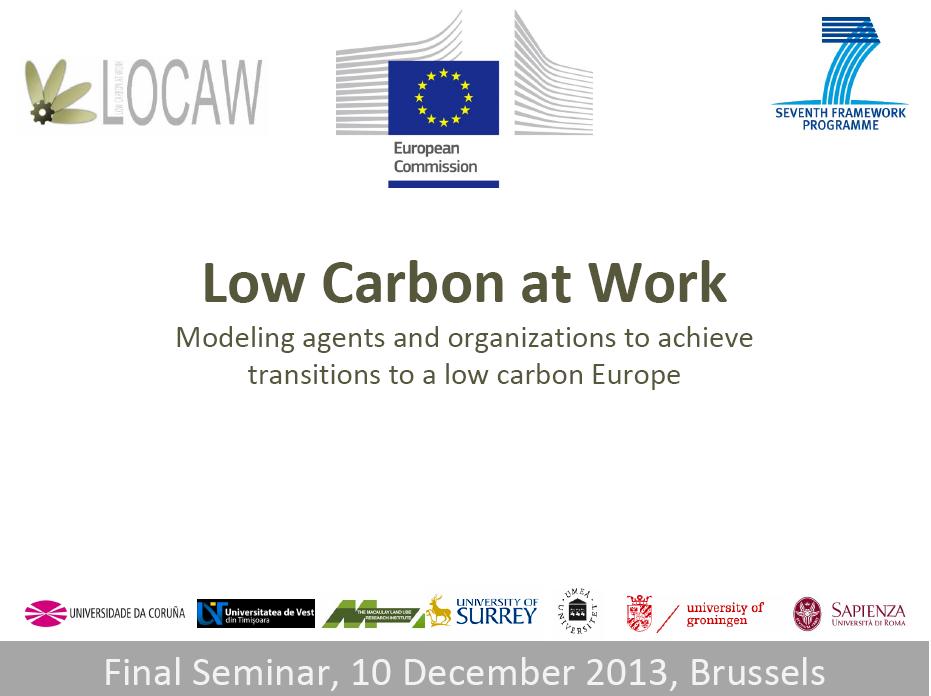 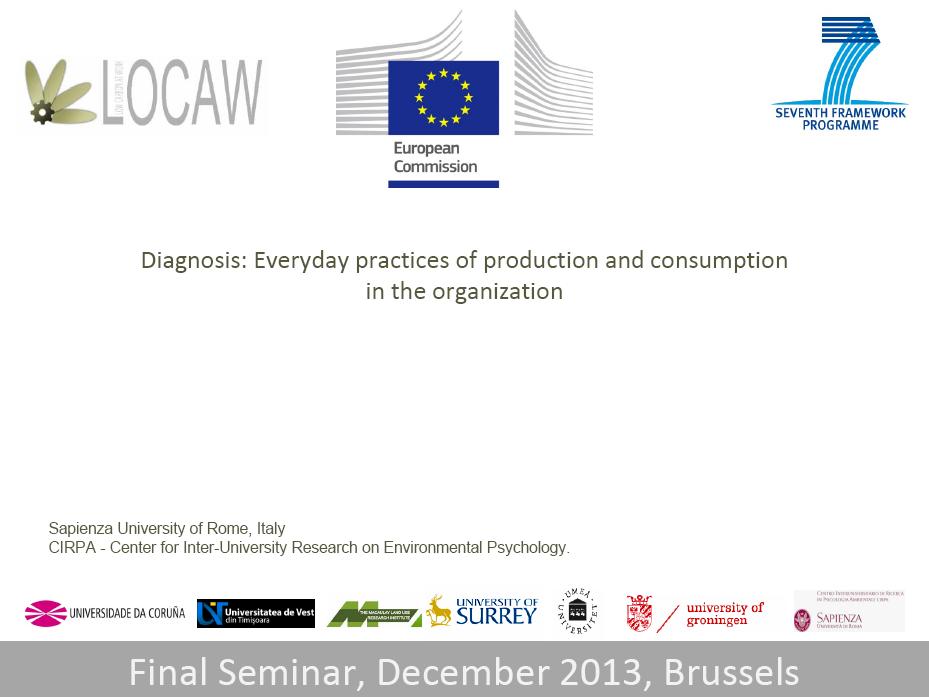
Professor Ricardo García Mira, UDC, Spain Professor Marino Bonaiuto, CIRPA, Italy
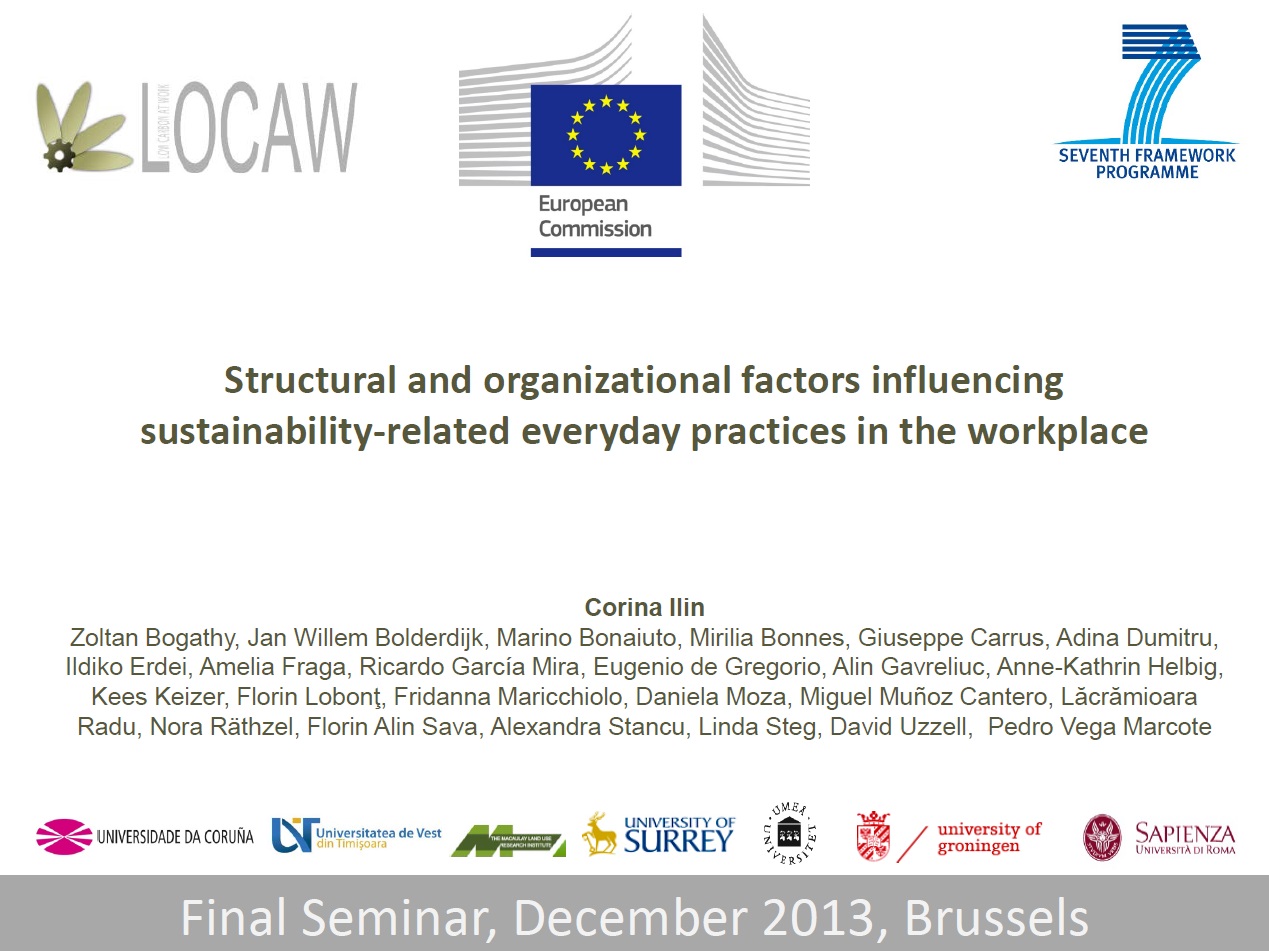 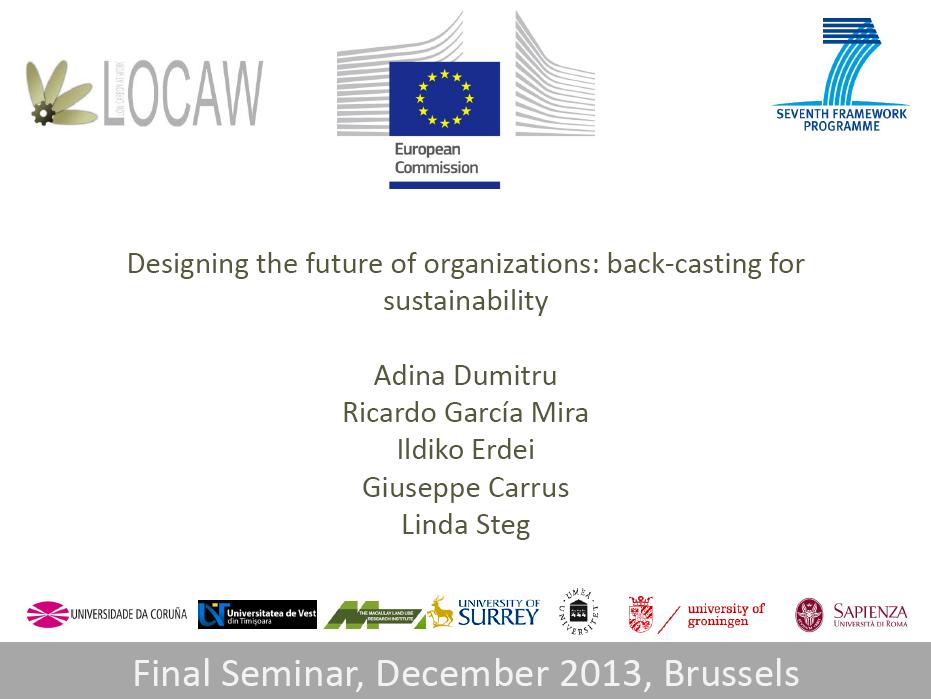
Dr Corina Ilin, UVT, Romania A. Professor Adina Dumitru, UVT and UDC
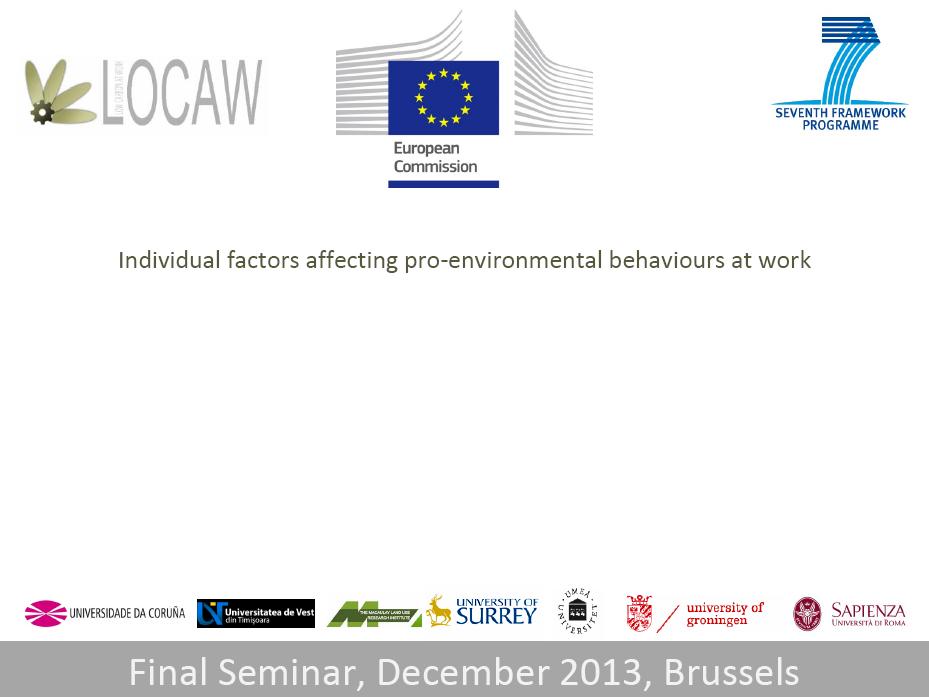 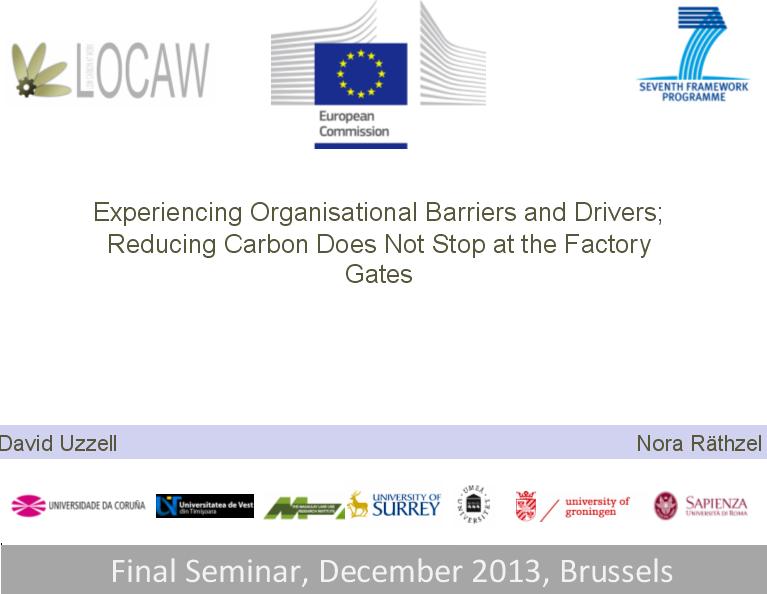
Professor Linda Steg, RUG, Netherlands Prof. Nora Räthzel, UmU & Prof. David Uzzell, UniS
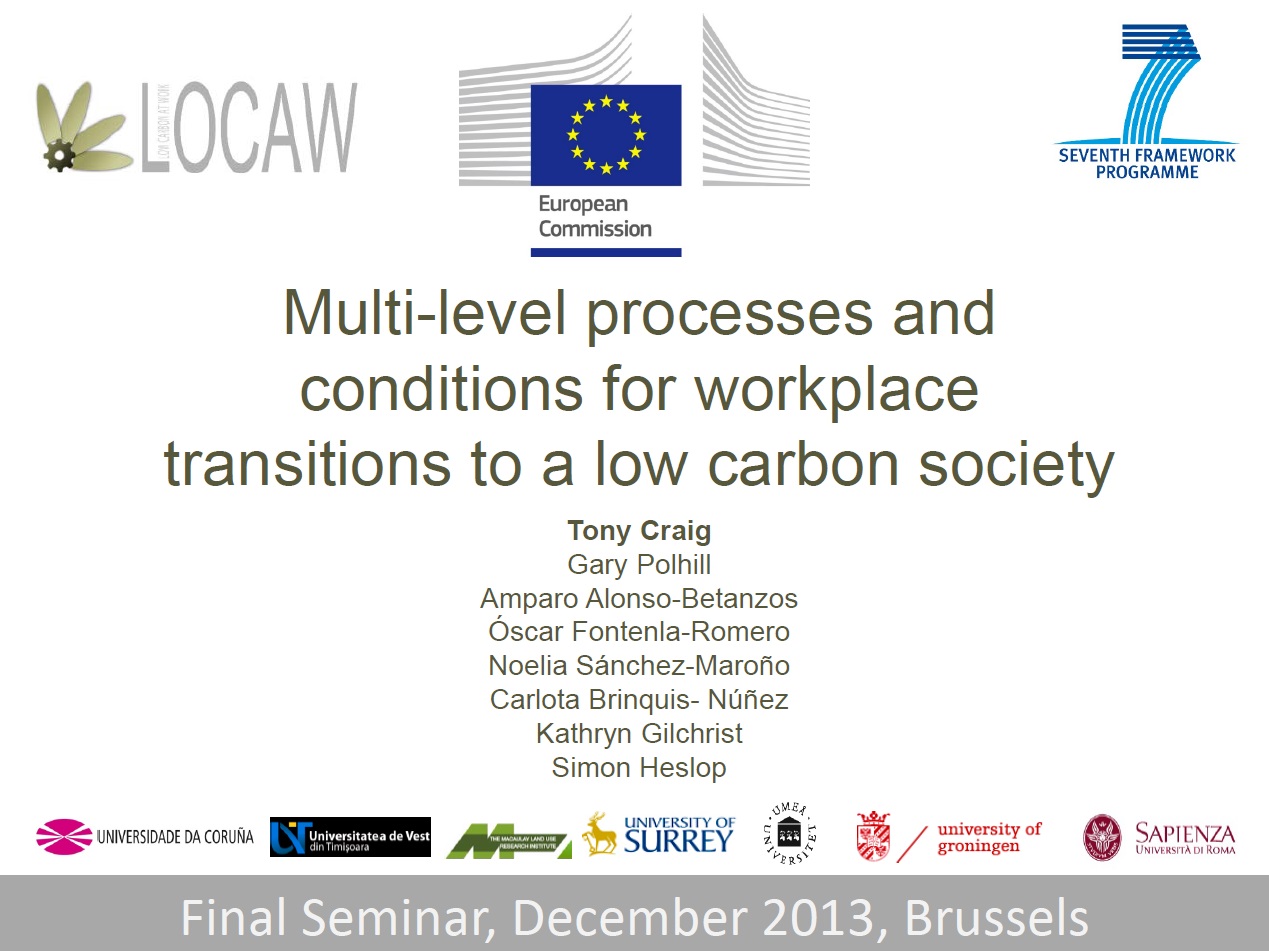
Dr. Tony Craig, MLURI, United Kingdom
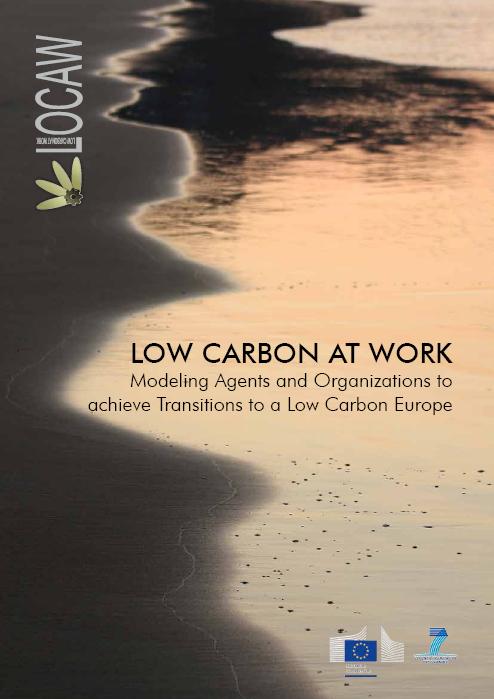
Patterns of unsustainable production and consumption have been recognized as main causes of climate change.
Despite cross-cutting multidisciplinary research and policy efforts in most European states, significant changes in consumption and production have not been realised.
These changes are needed to reverse or slow down the devastating projections outlined by the Intergovernmental Panel on Climatic Change.
While some reductions have been achieved through carbon trading and other flexible mechanisms agreed upon under the Kyoto protocol, it is now recognized that in the long term it is vital to enhance the efforts of individuals, organisations, and societies at large to reduce greenhouse gas emissions through changes in the patterns of production of goods and services as well as regarding their consumption.
Download pdf
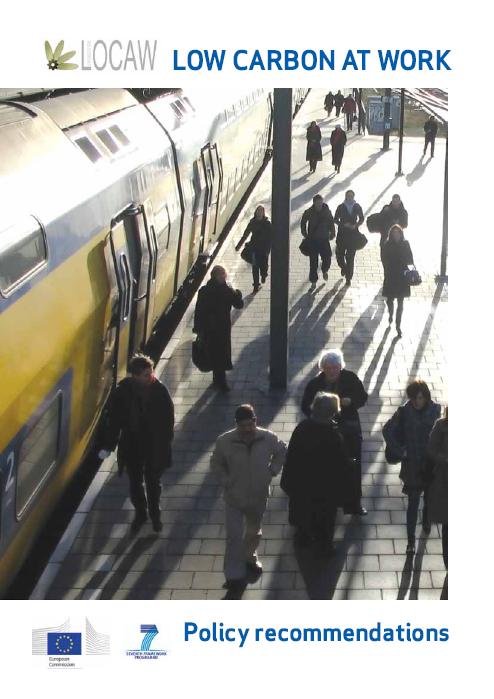
The LOCAW project set out to identify the barriers to, and drivers of, low-carbon transitions in workplaces across Europe, by systematically analysing everyday practices at work and home. The Project investigated six large-scale organizations across Europe, operating under different national and international contexts. The six case studies fall into three types: two state organizations (one university and one municipality), two service providers in the field of natural resources (water and energy), and two transnational heavy industry companies (truck manufacturing and oil and gas extraction).
The main findings emerging from the case studies are concentrated around four integrative themes, which are explored in detail in the LOCAW workpackage report D6.2:
• Structural conditions set outside the organisation
• Organisational priorities and vertical relationships within the organisation
• Horizontal relationships among workers
• Home - Work - Third Places – relationships
Download pdf
This document presents five key recommendations for policymakers that emerged from the LOCAW case studies.
|